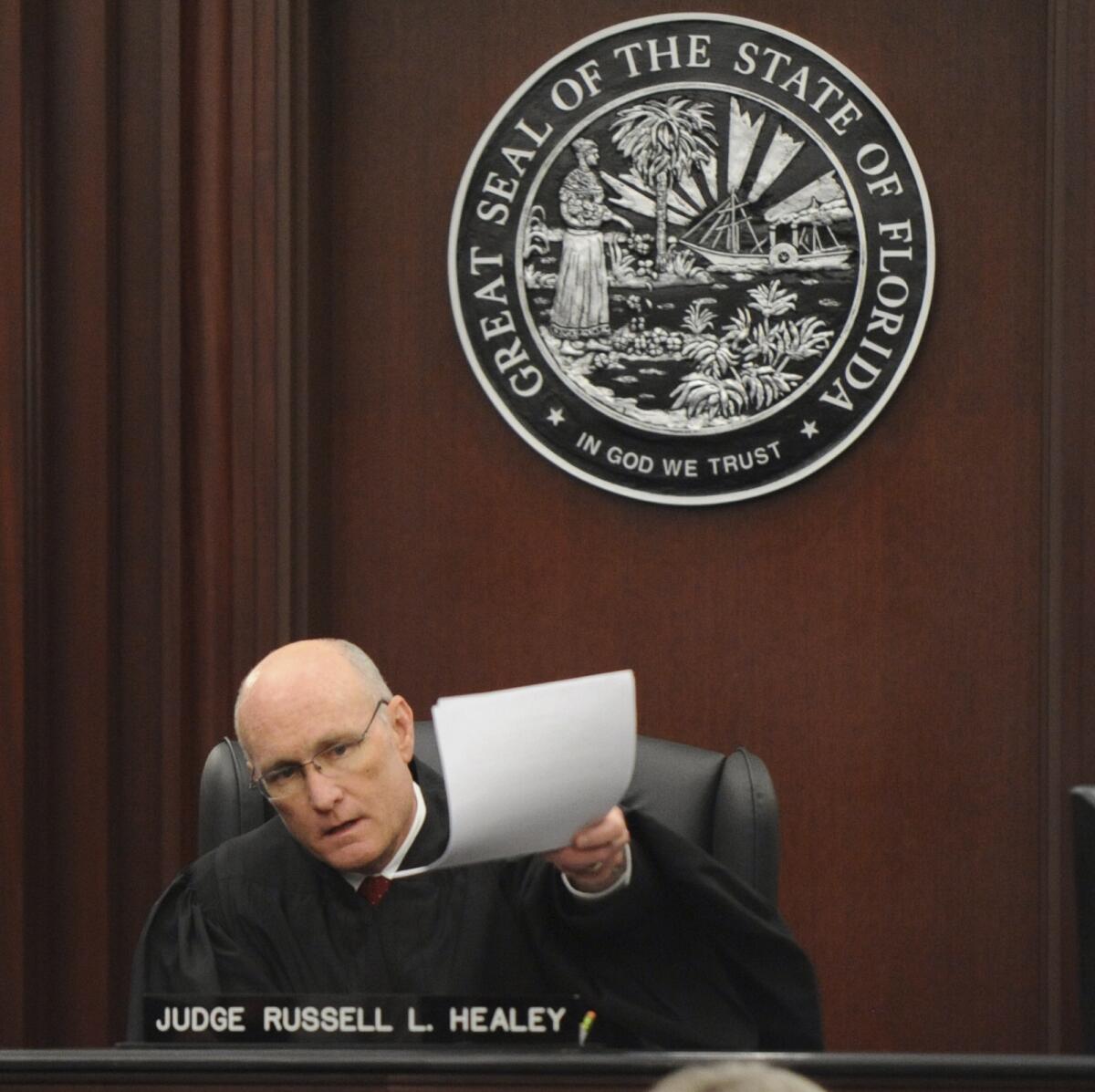Are ‘stand your ground’ laws and guns too deadly a mixture?

- Share via
A young man mouths off from the back of an SUV in a Florida convenience store parking lot — and Michael Dunn, sitting in the next vehicle, pulls a gun out of his glove compartment and opens fire, later claiming he felt threatened by a shotgun that he, and only he, saw.
A group of teens pulls a prank by dumping eggs, mayonnaise and leaves on a parked car — and Willie Noble, whose car it was, allegedly storms out of his house and opens fire, killing one of the kids.
And we all know what happened when George Zimmerman, carrying a handgun, began following Trayvon Martin and initiated a confrontation that ended in Martin’s death.
All were separate incidents, each with a different racial component. But two threads tie them. The first is the weapon used: a handgun. Remove the handgun from those scenes, and it is highly unlikely that anyone would have died.
The second thread is attitude, and this is where “stand your ground” laws (and mind-set) are particularly troublesome.
Dunn was convicted of attempted murder but didn’t receive a verdict on the charge that he killed Jordan Davis. One of the trial jurors broke the group silence in an interview Tuesday on ABC’s “Nightline,” saying the jury couldn’t agree on the pivotal issue of whether Dunn had cause to feel threatened. Ultimately, three of the 12 jurors thought so; the rest thought Dunn’s actions were not justified. Since it takes a unanimous verdict to convict, the judge declared a mistrial.
What I’m curious about is the mind-set of the person with the gun at the start of the encounter. Was Dunn emboldened knowing he had a loaded handgun in the glove compartment? Would Zimmerman have followed and instigated a confrontation with Martin had Zimmerman been unarmed? What would Noble have done — presuming for the moment that he fired the fatal shot — had he not kept a handgun within reach?
A study last year found a relationship among whites between racist views and gun ownership, as well as opposition to gun laws. But focusing on race can miss a deeper issue: whether gun ownership influences human interaction. Did having a gun within reach lead Zimmerman and Dunn to act more aggressively than they would have otherwise? Without a gun — again, presuming for the sake of argument, he fired the weapon he has been charged with using — would Noble have run out of the house?
These are not abstract issues, particularly with the current legal and legislative debates over regulating concealed weapons. Is an armed America a more aggressive America? And does the existence of stand-your-ground laws make confrontations more likely to turn violent?
ALSO:
Hollywood, help save the small town cinema
‘Social hosts,’ beware the booze you serve to minors
On eggs, hens and cages, Missouri is wrong and California is right
Follow Scott Martelle on Twitter @smartelle
More to Read
A cure for the common opinion
Get thought-provoking perspectives with our weekly newsletter.
You may occasionally receive promotional content from the Los Angeles Times.







